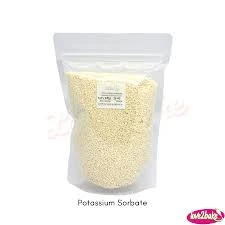
aspartame function
Understanding the Function of Aspartame
Aspartame, a low-calorie artificial sweetener, has become widely popular in the food industry and among consumers looking to reduce sugar intake without sacrificing taste. Discovered in 1965 by chemist James M. Schlatter, this compound has a sweetness approximately 200 times greater than that of sucrose (table sugar). Its unique properties and functionality have made it a staple ingredient in various food and beverage products, especially diet sodas, sugar-free desserts, and gum. In this article, we will delve into the function of aspartame, its composition, metabolism, and safety, while addressing some common misconceptions.
Composition and Functionality
Aspartame is a dipeptide methyl ester composed of two amino acids aspartic acid and phenylalanine. When ingested, aspartame is broken down into its constituent amino acids and methanol in the body. This breakdown occurs smoothly during digestion, making it an effective sweetener without carrying many calories. Its high sweetness intensity allows manufacturers to use only a tiny amount, which translates into fewer calories compared to traditional sugar. This functionality makes aspartame an attractive option for those managing their weight or controlling caloric intake.
Metabolism of Aspartame
Upon consumption, aspartame is metabolized in the gastrointestinal tract. The methyl ester bond is hydrolyzed, releasing methanol and the two amino acids. Methanol is further metabolized in the body to form formaldehyde and then to formic acid, which is ultimately converted to carbon dioxide and water. The amino acids, essential for various bodily functions, are utilized by the body for protein synthesis. It's worth noting that while phenylalanine can affect individuals with Phenylketonuria (PKU), a genetic disorder that impairs the metabolism of this amino acid, aspartame is considered safe for the general population when consumed within acceptable daily intake levels established by regulatory bodies.
The Role of Aspartame in Healthier Eating
aspartame function

In an era of growing health consciousness, the demand for low-calorie and sugar-free products has surged. Aspartame plays a significant role in meeting this demand. By providing sweetness without the associated caloric load, it enables individuals to satisfy their sweet cravings without compromising their dietary goals. This is particularly beneficial for diabetics and individuals trying to reduce their sugar consumption due to health risks, including obesity and metabolic disorders.
Moreover, aspartame's versatility allows it to be used across a wide array of products, expanding the options available for consumers looking for healthier alternatives. From flavored yogurts to sugar-free syrups, its function extends beyond just sweetness; it also enhances the overall flavor profile of various products.
Controversies and Safety
Despite its popularity, aspartame has faced scrutiny and controversy over the years, particularly concerning its safety. Numerous studies and reviews by agencies such as the U.S. Food and Drug Administration (FDA), European Food Safety Authority (EFSA), and World Health Organization (WHO) have deemed aspartame safe for human consumption. These organizations have set acceptable daily intake levels to ensure consumer protection. Nonetheless, ongoing debates about artificial sweeteners persist, emphasizing the importance of informed choices based on scientific evidence.
Conclusion
In conclusion, aspartame serves a vital function in contemporary diets, providing sweetness with minimal calories while allowing for healthier eating choices. Understanding its composition, metabolism, and safety can help demystify this widely-used sweetener. As consumers become more health-aware, aspartame will likely continue to play a significant role in the food industry, offering a practical solution for those seeking to enjoy sweetness without excess calories. Whether in a refreshing beverage or a decadent dessert, aspartame demonstrates its valuable function in modern dietary practices.
-
Pure Sodium Dichloroisocyanurate Dihydrate | Powerful DisinfectantNewsAug.29,2025
-
Industrial Chemicals: Quality & Purity for Every IndustryNewsAug.28,2025
-
Nitrile Rubber Honoring Strict Production StandardsNewsAug.22,2025
-
Aspartame Ingredients Honoring Food Safety ValuesNewsAug.22,2025
-
Fertilizer for Balanced Plant NutritionNewsAug.22,2025
-
Cyanide Gold Processing with High Purity AdditivesNewsAug.22,2025
-
Formic Acid in Textile Dyeing ApplicationsNewsAug.22,2025
Hebei Tenger Chemical Technology Co., Ltd. focuses on the chemical industry and is committed to the export service of chemical raw materials.
-

view more DiethanolisopropanolamineIn the ever-growing field of chemical solutions, diethanolisopropanolamine (DEIPA) stands out as a versatile and important compound. Due to its unique chemical structure and properties, DEIPA is of interest to various industries including construction, personal care, and agriculture. -

view more TriisopropanolamineTriisopropanolamine (TIPA) alkanol amine substance, is a kind of alcohol amine compound with amino and alcohol hydroxyl, and because of its molecules contains both amino and hydroxyl. -

view more Tetramethyl Thiuram DisulfideTetramethyl thiuram disulfide, also known as TMTD, is a white to light-yellow powder with a distinct sulfur-like odor. It is soluble in organic solvents such as benzene, acetone, and ethyl acetate, making it highly versatile for use in different formulations. TMTD is known for its excellent vulcanization acceleration properties, which makes it a key ingredient in the production of rubber products. Additionally, it acts as an effective fungicide and bactericide, making it valuable in agricultural applications. Its high purity and stability ensure consistent performance, making it a preferred choice for manufacturers across various industries.





